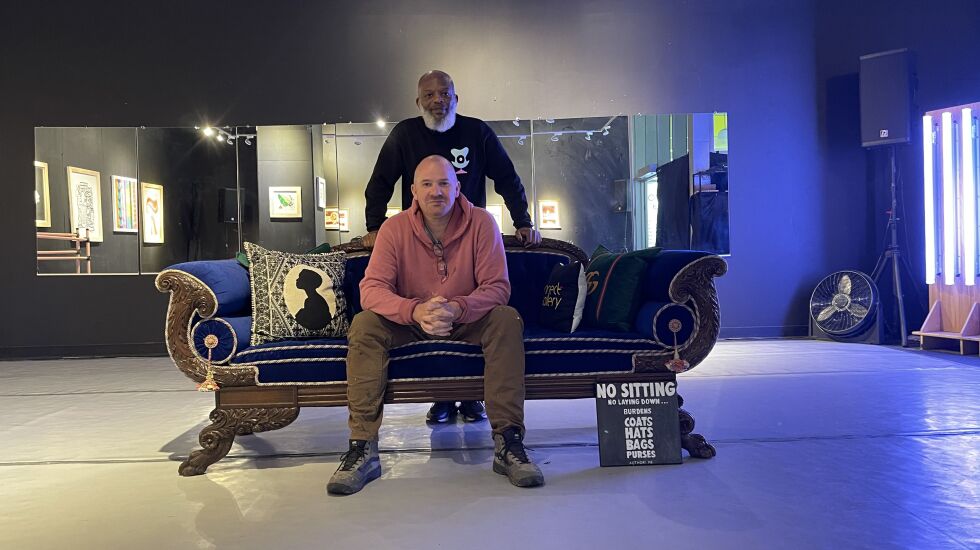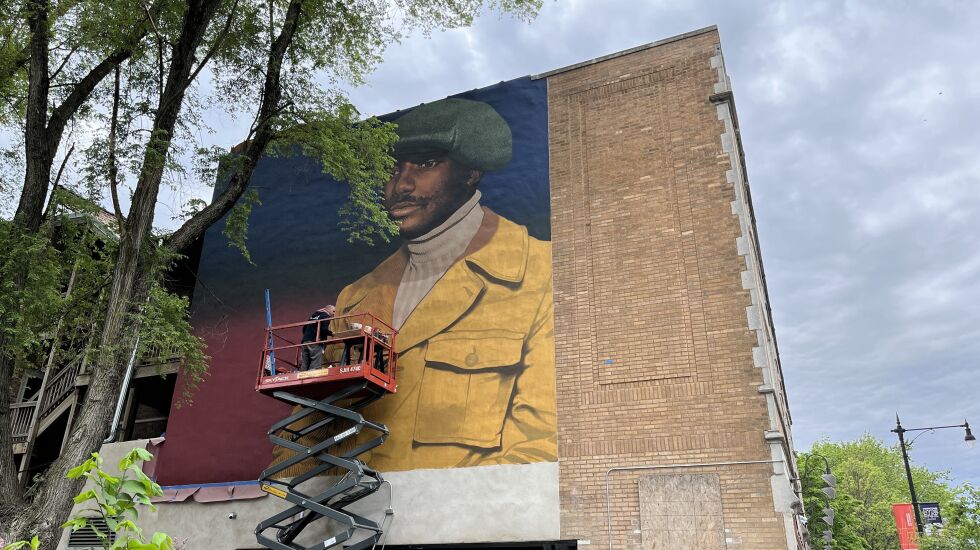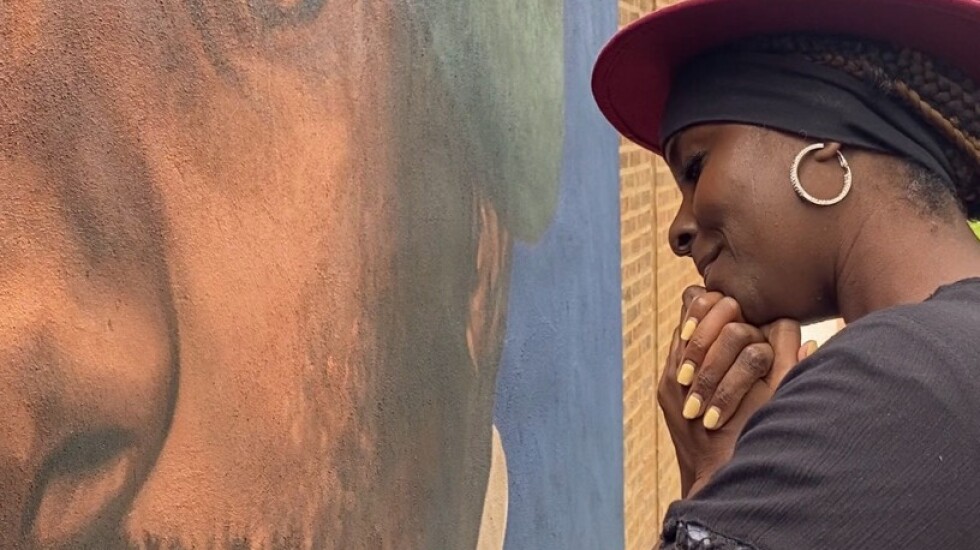
The painting, done earlier this year by Richard Wilson, was meant to “pay homage to Donny for the gifts he gave us,” he says.
The painting was also intended to raise awareness about “mental health issues within the Black community, particularly men,” and the “mostly unspoken daily pressures that exist while being a Black man in America and the toll that can take mentally,” Wilson says.
Hathaway struggled with mental illness, including schizophrenia. In 1979, he was found dead on a sidewalk below the high-rise hotel room he’d been staying at in New York City. His death was ruled to be by suicide. He was 33.
Rob McKay of the Connect Gallery on the South Side says he’s wanted for several years to create a mural series showcasing people who have “impacted the community,” starting with musicians but also featuring others of note, famous or not.

“I also wanted to show that mental health in our community needs to be talked about,” McKay says.
After COVID-19 hit, taking lives and exacting a terrible mental health toll, “It just clicked” that the first mural “should be Donny Hathaway,” he says.
Wilson, who is from London and now lives in Detroit, says he met McKay in 2018 “when I came to Chicago for the first time to try and find the opportunity to paint some walls, hoping to celebrate some of Chicago’s musical icons. Through a great friend in London, I was introduced to Eric Williams of the Silverroom” boutique in Hyde Park and then to McKay.
“In the years since — and Rob’s hard work to make an initial discussion become reality — we finally got the chance to paint.”
That happened in May on a building managed by the University of Chicago that houses the Small Cheval restaurant at 1307 E. 53rd St.
“Donny was on my list of icons I wanted to paint, although it was Rob that suggested Donny specifically for this wall,” Wilson says.

Stretching roughly 25 feet by 30 feet, the mural took about two weeks and 20 gallons of acrylic paint to complete, Wilson says.
At the bottom of the piece, there’s a QR code that can be scanned with a cellphone to tap information on mental health resources.
The mural also includes the lyrics to “Someday We’ll All Be Free,” a song Hathaway recorded:
“Hang on to the world
as it spins around
just don’t let the spin
get you down,
things are moving fast
hold on tight
and you will last.
Take it from me,
someday
we’ll all be
free.”
The lyrics were by Edward Howard, a Hathaway collaborator and friend.
“The power of great songwriting stands the test of time, and we can also interpret great songs in different ways,” Wilson says. “These lyrics are often associated with the Civil Rights Movement, although, according to Ed Howard, they were written for Donny more so about his mental health issues.”
“Decades later, the words still ring true,” says Wilson, who says he has suffered “on and off” from “sometimes quite severe depression.”
“I take medication for it, and, without it, I really struggle,” he says. “My artwork is something that’s really helped me as well.”
He says he has taken “massive inspiration and hope and strength from a song like that. It’s always been like a go-to for me, it’s my favorite song of his.”
“Usually, when people are painting something, they may not have that connection to it,” Wilson says. “But this is, for me, personal.”
One of Hathaway’s children, Donnita Hathaway, was 2 when her father died. She runs a group called the Donny Hathaway Legacy Project that celebrates his music and promotes mental health.

She visited while Wilson was painting the mural.
“I was able to go up on the crane and go up to my dad’s face, and I was just staring,” she says. “We look so much alike that it was like staring in the mirror. I fell in love with it.”







